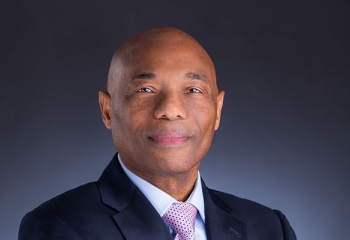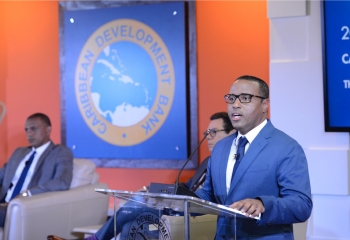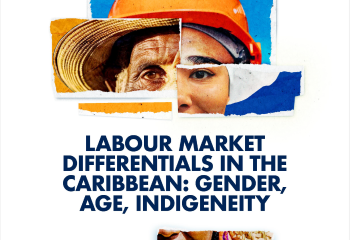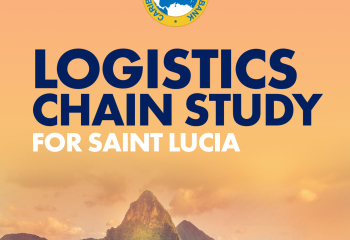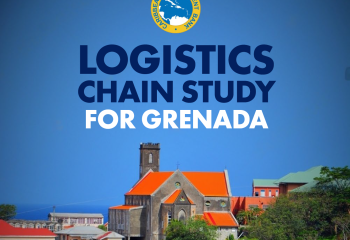Opening Remarks -22nd Annual Meeting of the Independent Accountability Mechanisms Network
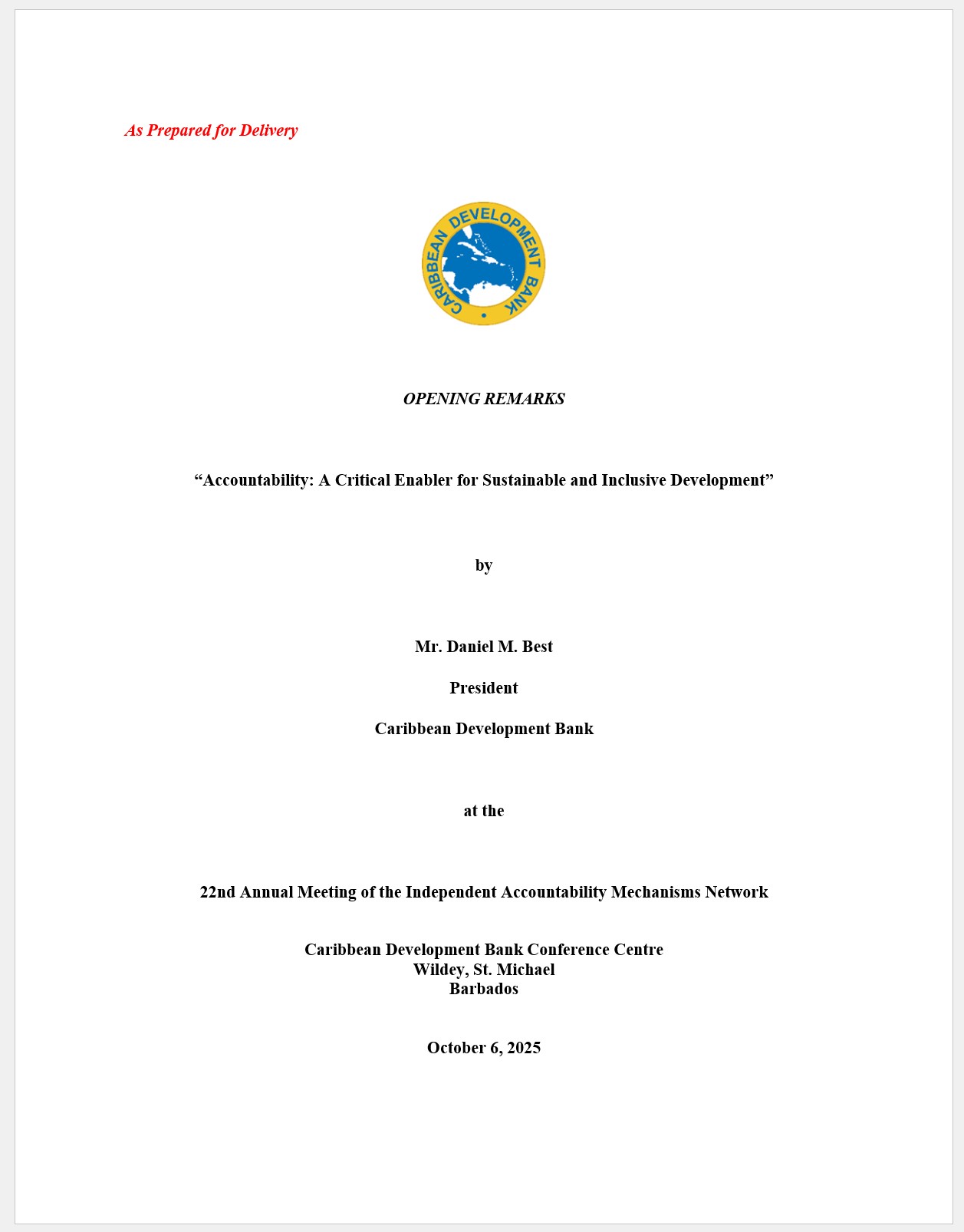
Heads of International Accountability Mechanisms, management and Staff of the Caribbean Development Bank (CDB), colleagues and friends, welcome to the 22nd IAMNet annual meeting. To those of you who are visiting us, I offer you a special welcome to CDB. It is good to have you here in beautiful Barbados for what I believe is one of the most important conversations we can have about the future of development finance.
Your presence here matters. As representatives from development institutions from across the globe, we gather because we share something fundamental: a belief that development finance must work for the people it's meant to serve, and a commitment to making that real through accountability.
The Global Crisis
I want to be direct with you this morning about what we're facing. The UN Secretary-General recently issued a stark warning: our Sustainable Development Goals (SDGs) are "alarmingly off track." That's not diplomatic language. That's an emergency declaration.
Less than 20 percent of SDG targets will be achieved by 2030. Nearly half are moving too slowly. Eighteen percent are actually regressing. Think about what that means, not in statistics, but in lives. Progress against poverty, inadequate. The fight against hunger, too slow. Climate action, grossly insufficient. Children waiting for schools that would not be built. People waiting for health services that would not come.
This sobering reality is proof that ambition alone is not enough; progress must be tracked, measured, and backed by accountability. No doubt this is why, when the United Nations General Assembly adopted the 2030 Agenda for Sustainable Development in 2015, the resolution stated that “a robust, voluntary, effective, participatory, transparent and integrated follow-up and review framework will make a vital contribution to implementation and will help countries to maximise and track progress in implementing this Agenda in order to ensure that no one is left behind.”
They understood that accountability mechanisms are not obstacles to the SDGs—they are enablers. Regional and global mechanisms like yours act as force multipliers for national efforts. This is absolutely critical because the painful truth is that between 10 and 30 percent of development resources leak away—to corruption, to mismanagement, to non-compliance. And let me be clear about who pays the price: it's always the vulnerable. The widow who can't access support. The community displaced. The young person denied opportunity.
That is unacceptable. And this is why your work—the work of Independent Accountability Mechanisms—is not peripheral to development. It is foundational.
The Caribbean Context
Let me bring it home to this Region. The Caribbean is one of the most climate-vulnerable locations on Earth. For small island developing states like ours, climate finance isn't just about development – it is existential.
The scale of financing we need to build resilience and recover from disasters is enormous. But here is the risk: as climate finance flows increase, so do opportunities for corruption. For CDB and our Borrowing Member Countries, this creates a double imperative. We must secure climate finance, and we must ensure it's deployed with integrity. Any governance failures could jeopardise our access to future resources—access our Region desperately needs. Strong accountability frameworks aren't optional; they are prerequisites for survival.
Beyond climate vulnerability, the Caribbean is also exceptionally hazard-prone. Between hurricanes, earthquakes, floods, and volcanic eruptions, our countries face catastrophe year after year. Given our susceptibility to natural disasters, we must ensure that when hazards strike, our response does no harm.
Many of us are still scarred by what happened in one of our Borrowing Member Countries after a natural hazard impact. Some of those sent to provide aid and assistance instead committed atrocious harm against the country’s citizens, including the most vulnerable. The accountability failures there were not administrative lapses—they were moral catastrophes that betrayed the fundamental trust upon which all humanitarian and development work depends. This is precisely the kind of failure that robust accountability mechanisms exist to prevent and address.
The Region also faces severe economic challenges. Our small, open economies, massive debt burdens, and limited fiscal space leave us with zero room for error. Every development dollar must count. There is no cushion for waste and no margin for corruption. When a project fails because of corruption or poor safeguards, that is not just a number on a report—it is a clinic that would not be built, teachers who would not be hired, young people who won't get scholarships, roads that would not be constructed.
In the Caribbean, accountability is not a luxury. It is survival. This is where you come in.
The True Role of IAMs
My friends, Independent Accountability Mechanisms are the systems that make development work. Development finance is built on trust. Governments trust us with their sovereignty. Communities trust us with their futures. Taxpayers trust us with their contributions. That trust is sacred.
Hence, you—IAM professionals—are the guardians of that trust. You ensure that resources reach the people who need them, projects do no harm, communities have a voice, and when things go wrong, those responsible must answer.
But IAMs are more than compliance tools. They are vehicles for institutional learning. Complaints reveal gaps we can close. Investigations uncover systemic issues we can fix. Cases offer opportunities for improvement. Your efforts turn mistakes into course corrections.
CDB's Commitment to Accountability
At CDB, this has been embedded in who we are and how we work. Accountability, Integrity, and Transparency are among our core values.
In 2015, we established our Office of Integrity, Compliance and Accountability—ICA—as an operationally independent office covering five functions: institutional integrity, ethics, accountability through our Projects Complaints Mechanism, compliance, and whistleblowing.
Let me share what this looks like in practice. An 81-year-old complainant reported that trucks from a CDB project broke power lines, affecting senior citizens, including a disabled person. Six homes lost power. Appliances were damaged. Livelihoods disrupted.
Eventually, the case came to ICA. The ICA team and the Projects Department went to work. We visited the affected homes, spoke directly with the complainant and other people who were affected, and documented the damage. We conducted assessments, and we were able to resolve the matter to the satisfaction of the affected households.
This is accountability in action, not abstract policy, but people listening to concerns, making assessments, and ensuring harm is remedied.
Accountability As Catalyst for Change
Accountability is not just about fixing problems; it also facilitates improvement and enables change.
When IAMs function well, they drive innovation. Feedback from cases can lead to better project design, stronger safeguards, and improved consultation processes. You are more than investigators—you are change agents.
So, allow me to expand your job description, because I want you to see yourselves in a new light. You are innovators. Your work reveals where policies fall short and where safeguards need strengthening. The patterns you identify drive institutional change. The evidence you generate shapes better standards across our operations. Your function isn't reactive, it's catalytic. You don't just identify what went wrong; you illuminate pathways to what can work better. This is how policies get reformed, safeguards get strengthened, and consultation processes get improved.
The Multilateral Development Bank system is evolving rapidly—embracing climate finance at unprecedented scale, pursuing digital transformation to reach new beneficiaries, advancing inclusive development that leaves no one behind. For all our institutions, transformation is now essential. But transformation without accountability is unsustainable. Transformation without transparency is untrustworthy. Transformation without community voice is incomplete.
IAMs provide real-time course correction by creating feedback channels that bring community voices directly into project design and implementation, catching problems before they become crises. By giving affected populations a mechanism to raise concerns or challenge decisions, you ensure transformation isn't just top-down but community-driven. As we devise new approaches, your function helps us adapt and adjust by serving as early warning systems that detect when new models aren't working on the ground.
At CDB, we have intentionally invested in building accountability culture and capacity. We have also trained staff in sexual exploitation and abuse response and prevention mechanisms with the World Bank's Accountability Mechanism. We have partnered with IDB's Independent Consultation and Investigation Mechanism and civil society to raise awareness about accountability channels. We have delivered targeted workshops to our Basic Needs Trust Fund teams—who drive our largest poverty reduction programme—focused on prevention and early identification of risks.
This is accountability as a force for institutional strengthening and an enabler of transformation.
The Human Imperative
But ultimately, accountability comes down to something very simple: people.
Thriving communities are those where development is just, inclusive, and participatory. Where people have a voice in decisions affecting their lives. Where resources reach those who need them most. Where development builds dignity.
IAMs ensure those voices—especially of marginalised groups—are heard and acted upon. This matters profoundly. Development that excludes voices will fail the very people it aims to serve. Your work is not abstract. It has names, faces, and families attached to every case.
When accountability works—when resources reach their destination, when harm is prevented, when voices shape outcomes—people can achieve their full potential. They can pursue opportunities, build futures, and live with dignity and agency. That is what it means to thrive. Not just survival, but quality of life and well-being. And accountability is what makes thriving possible.
Our Collective Calling
My IAMNet colleagues, you are not just accountability professionals. You are guardians—guardians of trust, of resources, of promises made to real people. You are guardians of sustainable development itself, which means you are guardians of your fellow citizens.
The next era of development finance will be defined not by the scale of resources we mobilise, but by the effectiveness of those resources in changing lives. You are central to that effectiveness.
As we face the urgent reality of off-track SDGs, shrinking aid budgets, intensifying climate disasters, and rising public skepticism, accountability mechanisms offer the pathway to restore trust and drive results.
Continue to innovate boldly in how you approach your functions. Continue to push us to operate responsibly, with people at the center. Continue to ensure that the voices of the vulnerable are not just heard but acted upon.
Let us build a development finance system where every dollar reaches its intended purpose, every voice is valued, every institution learns continuously, and every community can hold us accountable.
This is the infrastructure of trust. This is accountability as transformation. This is how we ensure that the people we serve can truly thrive.
I thank you.
